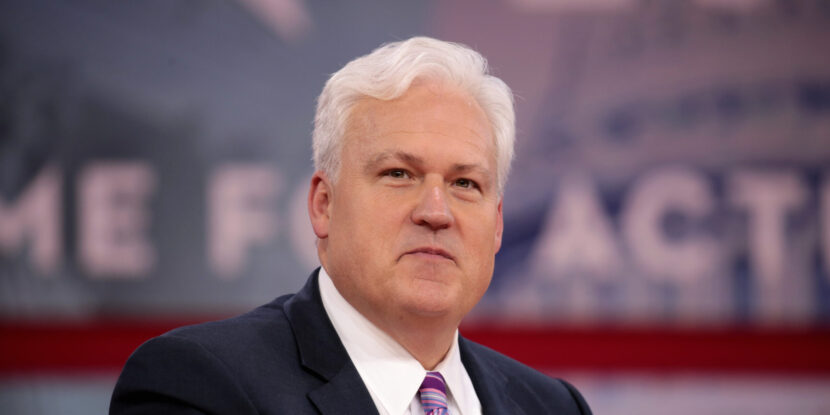
PULSE POINTS:
❓What Happened: Friedrich Merz failed to secure enough votes to become Germany’s Chancellor (Prime Minister) on an initial ballot in the German legislature, the first time such an event has occurred since the Second World War. However, he managed to secure sufficient votes after a second attempt.
👥 Who’s Involved: Friedrich Merz, Christian Democratic Union (CDU), Christian Social Union (CSU), Social Democrats (SPD).
Your free, daily feed from The National Pulse.
📍 Where & When: German Bundestag (Parliament), May 6.
💬 Key Quote: “It is an annoying process, but in a parliamentary democracy, in a liberal country, this is unfortunately one of the scenarios that you have to be prepared for,” complained Johann Wadepuhl, Merz’s prospective foreign minister, after he failed to pass the initial ballot.
⚠️ Impact: The failure to elect a chancellor on the first ballot was historic; there was a potential for new elections if a majority had not been reached within 14 days.
IN FULL:
Friedrich Merz, the leader of Germany‘s notionally conservative Christian Democratic Union (CDU)—formerly led by Angela Merkel—did not secure enough votes in the Bundestag to become Chancellor in an initial ballot. This marks the first time since World War II that a candidate for Chancellor has failed to win on the initial ballot in the German legislature.
Merz required a majority of 316 votes to succeed but fell short by six votes, obtaining only 310 out of 630. His coalition, which includes the CDU, its Bavarian sister party the Christian Social Union (CSU), and the leftist Social Democrats, holds a slim majority with 328 seats. The secret ballot nature of the vote means it is unclear who within his coalition did not support him, although he managed to push through with 325 votes on his second attempt.
If Merz had not managed to secure a majority within 14 days, the German president, who generally plays a largely ceremonial head of state role in national politics, could have been forced to intervene and either appoint the candidate with the most votes as Chancellor or dissolve parliament, prompting a new national election.
Johann Wadepuhl, set to become Merz’s foreign minister, said of Merz’s initial failure, “It is an annoying process, but in a parliamentary democracy, in a liberal country, this is unfortunately one of the scenarios that you have to be prepared for.”
Meanwhile, Alice Weidel, co-leader of the largest opposition group, Alternative for Germany (AfD), criticized Merz’s coalition—roughly equivalent to a Republican-Democrat alliance—calling it a “weak foundation.” She has urged for Merz’s resignation and the initiation of new elections.
The vote comes less than a week after the German domestic intelligence service declared the AfD a right-wing extremist organization, allowing surveillance measures directed at all party members and the use of informants. The move was met with significant criticism from the Trump administration.

PULSE POINTS:
❓What Happened: A Virginia judge acquitted former Conservative Political Action Conference (CPAC) finance director Ryan McGowan of wrongdoing in a $14,000 payout dispute, rejecting claims he overpaid departing staffers’ unused vacation time.
👥 Who’s Involved: Ryan McGowan, Alexandria Circuit Court Judge Kathleen Uston, CPAC executive Lynne Rasmussen, former CPAC general counsel David Safavian, former executive director Dan Schneider, and CPAC chairman Matt Schlapp.
Your free, daily feed from The National Pulse.
📍 Where & When: Alexandria Circuit Court, Alexandria, Virginia, May 6, 2025.
⚠️ Impact: The ruling exposes CPAC leadership’s inconsistencies, potentially weakening its influence while strengthening McGowan’s rival conservative group amid ongoing fallout from the Schlapp scandal.
IN FULL:
A Virginia court has cleared former Conservative Political Action Conference (CPAC) finance director Ryan McGowan of allegations he improperly paid $14,000 in unused vacation time to five departing staffers, delivering a sharp rebuke to the Matt Schlapp-led outfit. The decision, handed down in Alexandria Circuit Court, highlights internal dysfunction at CPAC, which has also been rocked by homosexual scandals involving Schlapp for years.
Judge Kathleen Uston, in a 30-minute evidence review, pointed to glaring contradictions in the testimony of CPAC executive Lynne Rasmussen and former general counsel David Safavian.
Rasmussen claimed she emailed staff about a paid time off (PTO) limit but failed to produce the emails, and a text exchange showed her asking McGowan’s deputy for a 15 percent salary increase while keeping McGowan in the dark—contradicting her testimony that the deputy lacked such authority. The judge also noted the frustration of the Alexandria detective investigating the case, who was blindsided by details Rasmussen withheld.
The case, long followed by The National Pulse, was more to do with Schlapp pursuing a vendetta at those he perceived to undermine his leadership than any actual wrongdoing.
McGowan’s new conservative group, which grades lawmakers, has also drawn CPAC’s ire, though a civil suit against them was dismissed earlier this year.
Testimony also revealed McGowan had flagged a $50,000 legal bill CPAC paid for Schlapp during the scandal, reigniting scrutiny of Schlapp’s leadership.
CPAC and its parent organization, the American Conservative Union (ACU), has now shelled out vast swathes of donor cash, staff time, and attracted mountains of negative publicity as a result of Schlapp’s numerous escapades.
For years, The National Pulse has been at the forefront of exposing the corruption inside the organization, including contributions from Soros-linked groupsSoros-linked groups, as well as extreme financial improprieties.
The organization is now a shell of its former self, once hosting the largest annual conservative conference, now relegated to an afterthought.
show less

The Department of Homeland Security (DHS) is offering free flights and a $1,000 stipend to illegal aliens who voluntarily leave the U.S. — a self-deportation program the agency says costs far less than traditional deportation.
The details: The program requires illegal aliens to register for self-deportation through the CBP Home App, and they only receive their stipend once it is verified that they have returned to their home country.
Your free, daily feed from The National Pulse.
- President Trump told the press: “We’re gonna get them a beautiful flight back to where they came from.”
Cost savings: DHS says it currently costs the American taxpayer over $17,000 to arrest, detain, and deport a single illegal alien. Under this new, self-deportation program, it costs around $4,500—a 70 percent savings.
- White House Deputy Chief of Staff Stephen Miller added on X: “The savings are as much as $1 million per illegal alien family given the long-term costs of free welfare and public support.”
What the left is saying: Pro-illegal groups are denouncing the plan and urging illegals to reject the offer. One activist, Aaron Reichlin, said: “This option might be WORSE… it would abandon clear options for staying.”
Zoom out: The plan is reminiscent of Trump’s effort to reduce the federal workforce by offering buyouts to government workers who voluntarily resigned, ultimately leading to 77,000 resignations. Pay a little up-front for long-term savings.
The last word goes to President Trump, who warned that those who do not take this offer “are going to be taken out of our country… And they will never get a path to come back in.”
Be sure to subscribe to the Wake Up Right newsletter!
show less
The Department of Homeland Security (DHS) is offering free flights and a $1,000 stipend to illegal aliens who voluntarily leave the U.S. — a self-deportation program the agency says costs far less than traditional deportation. show more

 1 month ago
4
1 month ago
4








 English (US) ·
English (US) ·